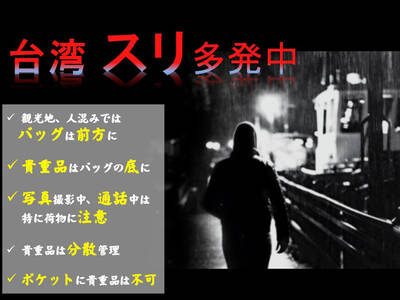The legislature on Dec. 21 passed an amendment to extend tax breaks for investing in biomedical research and development (R&D), while providing tax benefits to promote the development of Taiwan’s biomedical industry.
The amendment to the Act for the Development of Biotech and New Pharmaceuticals Industry (生技新藥產業發展條例), which cleared its third reading in the legislature, extends the law until the end of 2031.
The amendment expands the law starting this year to cover emerging fields such as regenerative medicine, digital health and precision medicine, including contract development and manufacturing organizations.
New tax reductions are also provided to further promote the development of emerging biotechnology and pharmaceutical products in Taiwan.
For example, biopharmaceutical companies that invest NT$10 million to NT$1 billion (US$361,899 to US$36.2 million) per year in new equipment or systems can receive a 5 percent corporate income tax reduction for one year, or a 3 percent tax reduction for three consecutive years.
Additionally, an individual investor who invests more than NT$1 million in cash in a biopharmaceutical company for one year and is registered as a shareholder of the company for more than three years can receive an income tax reduction for up to 50 percent of the investment.
Under the amendment, a biopharmaceutical company can receive a corporate income tax reduction of up to 25 percent of total funds invested in R&D and personal training for five years.
Before the amendment, a company received a corporate tax reduction of up to 35 percent of its investment.
The Cabinet, which proposed the amendment, said that the changes reflect the reduction of corporate income tax from 25 percent to 20 percent in 2018.

GENSLER SURVEY: ‘Economic infrastructure is not enough. A city needs to inspire pride, offer moments of joy and foster a sense of belonging,’ the company said Taipei was named the city with the “highest staying power” in the world by US-based design and architecture firm Gensler. The Taiwanese capital earned the top spot among 65 cities across six continents with 64 percent of Taipei respondents in a survey of 33,000 people saying they wanted to stay in the city. Rounding out the top five were Vietnam’s Ho Chi Minh City (61 percent), Singapore (59 percent), Sydney (58 percent) and Berlin (51 percent). Sixth to 10th place went to Monterrey, Mexico; Munich, Germany; Sao Paulo, Brazil; Vancouver; and Seoul. Cities in the US were ranked separately, with Minneapolis first at

The Japan-Taiwan Exchange Association has cautioned Japanese travelers to be vigilant against pickpockets at several popular tourist spots in Taiwan, including Taipei’s night markets, the Yongkang Street area, Zhongshan MRT Station, and Jiufen (九份) in New Taipei City. The advisory, titled “Recent Development of Concerns,” was posted on the association’s Web site under its safety and emergency report section. It urges travelers to keep backpacks fully zipped and carried in front, with valuables placed at the bottom of the bag. Visitors are advised to be especially mindful of their belongings when taking photos or speaking on the phone, avoid storing wallets and

Scoot announced yesterday that starting in October, it would increase flights between Taipei and Japan’s Narita airport and Hokkaido, and between Singapore and Taipei. The low-cost airline, a subsidiary of Singapore Airlines, also said it would launch flights to Chiang Rai in Thailand, Okinawa and Tokyo’s Haneda airport between December and March next year. Flights between Singapore and Chiang Rai would begin on Jan. 1, with five flights per week operated by an Embraer E190-E2 aircraft, Scoot said. Flights between Singapore and Okinawa would begin on Dec. 15, with three flights per week operated by Airbus A320 aircraft, the airline said. Services between Singapore

ENDORSING TAIWAN: Honduran presidential candidate Nasry Afura said that Honduras was ‘100 times better off’ when it was allied with Taipei The Ministry of Foreign Affairs yesterday said it would explore the possibility of restoring diplomatic relations with Honduras based on the principle of maintaining national interests and dignity. The ministry made the remarks in response to reporters’ questions regarding an article titled: “Will Taiwan Regain a Diplomatic Ally?” published in The Diplomat on Saturday. The article said Honduras’ presidential election in November could offer Taiwan the chance to regain an ally, as multiple candidates have promoted re-establishing diplomatic relations with Taiwan. Honduras severed diplomatic ties with Taiwan in March 2023 in favor of Beijing, but since switching its diplomatic recognition,